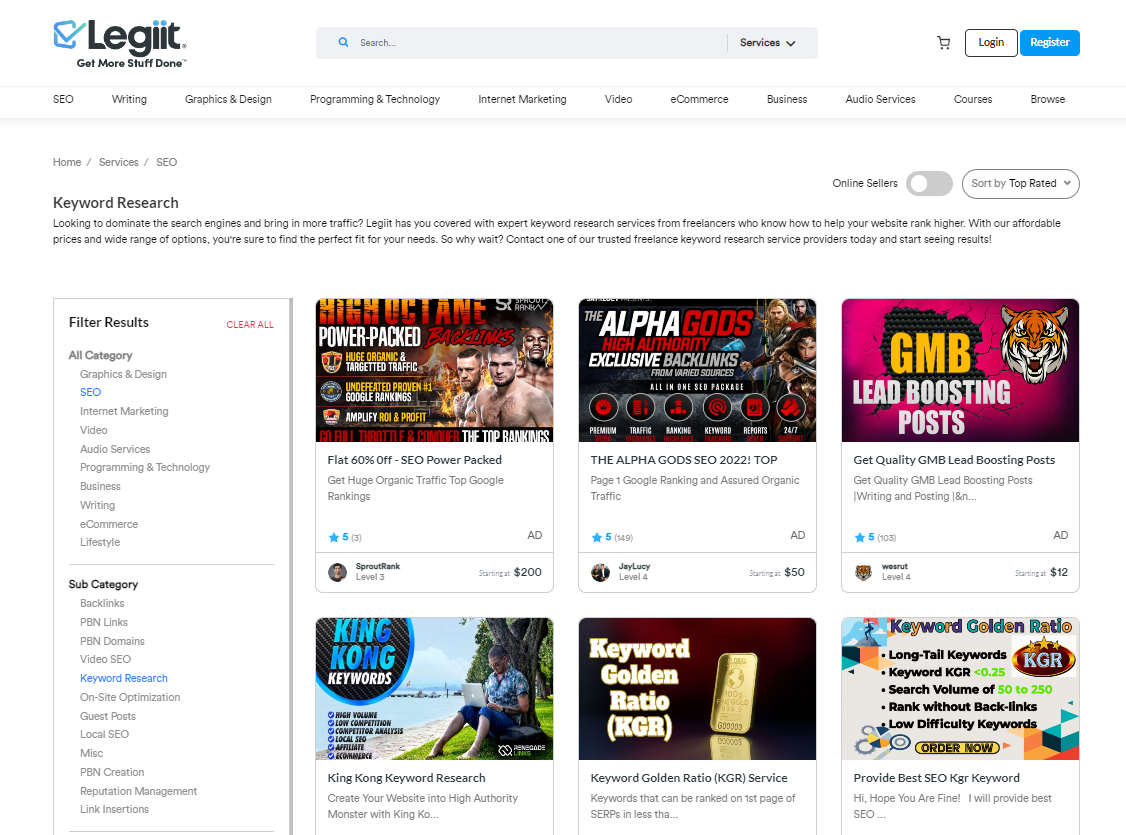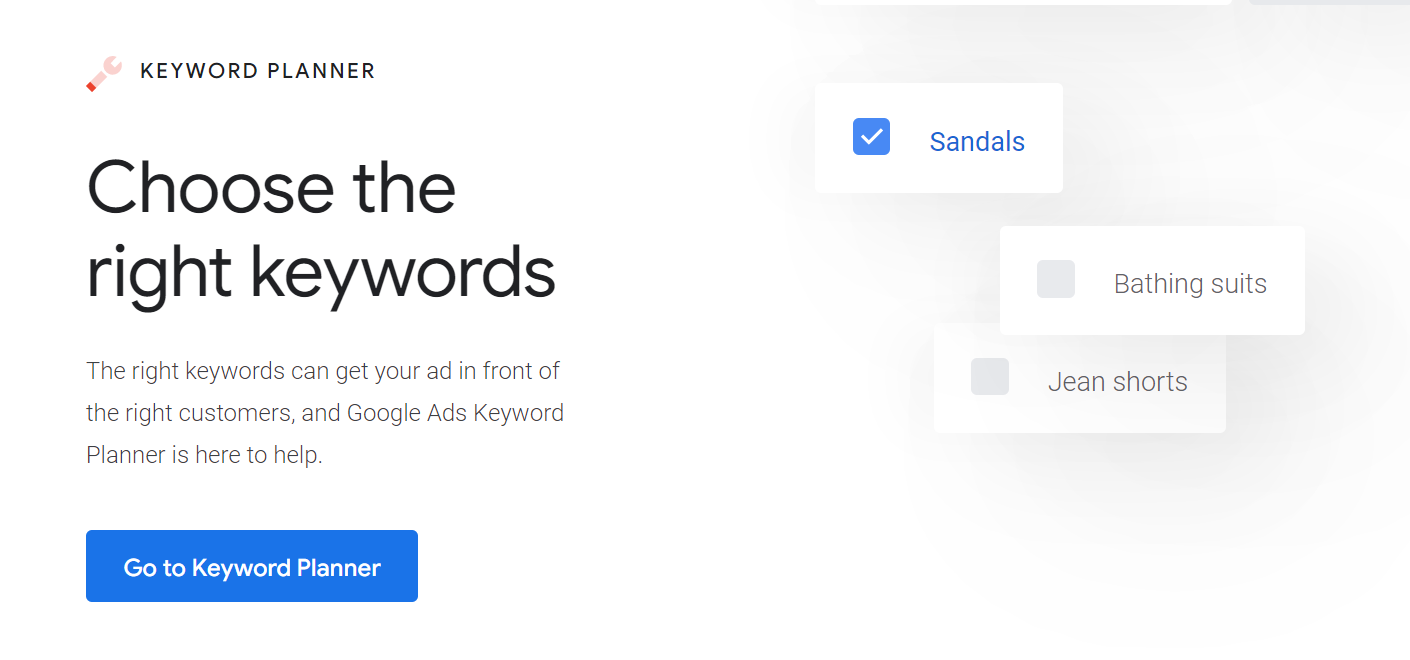Get the Inside Scoop on Keyphrases and How to Use Them
What are keyphrases?
Keyphrases are the exact phrases that you want people to use when they are searching for your business.
Let's say you own an organic bakery specializing in gluten-free, vegan cupcakes.
Your goal is to generate more sales and attract new customers through search engine optimization (SEO) and pay-per-click (PPC) advertising.
You know how to bake awesome cupcakes, but how do you make sure that people who need your cupcakes find your business online?
Through keyphrases!
What Is SEO Keyphrase Research?
A research process known as keyword research helps determine which word(s) best fit your business.
It can help you figure out what content needs to be written and what words/phrases should be used in search engine optimization (SEO) and in paid search advertising (PPC).
Keyword research tools are specifically designed to help you conduct this whole process.
Tools like Google Adwords Keyword Tool show you up-to-date data about what people are searching for right now, in addition to showing suggestions related to those searches.
And if this is too much work, you can always hire a freelancer on Legiit (or any other freelancing platform) to do the work for you.

Keyphrases That Are Ideal for SEO and PPC
If you want to target a specific word or phrase, you have to keep in mind that there are different areas to focus on, depending on your campaign.
So, if you have an SEO campaign, pay attention to:
- Informational keywords such as “how to do…” “what is…”
- Keywords that have low competition in the SERPs, high volume but low keyword difficulty (KD)
- Keywords that your target customers use even when they're not searching exactly for what you sell
- Keywords you can use to provide unique value to your readers.
So, if you have a PPC campaign, pay attention to:
- Keywords with somewhat focused buyer intent
- Keywords where someone is searching for your exact product “pet food.”
- Branded keywords that include your competitors or you (iPhone, Samsung phone.)
How to Find Keyphrases for SEO
1. Start by Making a Quick Search on Google
You may be surprised at what you find.
You see, most people don't know that you can search in different ways other than with a word.
Google has a list of popular words that they match your search query with.
If you type in some general keyword phrases related to your business, like magic, Google will offer you several autocomplete suggestions.
And if that's not enough, you can scroll to the bottom of the search results, where you will find the area headed ‘Related searches.'
This section offers you more specific search queries related to your original, broader topic.
2. Use Answer the Public for Inspiration
Answer the Public is one of the best free keyword tools for SEO and PPC.
It uses machine learning algorithms to find keywords and topics you can use to target potential customers.
This means that Answer the Public gives you an idea of what will work in terms of competition by analyzing what people are searching for related to a specific keyword.
It's excellent to find long-tail keywords for SEO (more on that below.)
It gathers the data from different other search engines and presents it in a creative way.
To get a ton of keyword ideas, you must enter your primary keyword or a related term and click “Search.”

3. Don't Forget About Long-Tail Keywords
Luckily, there are tons of keyword tools out there that will help you choose the best keywords and get a basic idea of what your competition is up to.
When considering which keywords you want to go after, here are some important things to keep in mind:
1) Decide if you're targeting broad or long-tail keywords. The more specific your target, the better, as you'll have less competition.
2) Include at least 1-2 variations of your primary keyword in every list of 10 potential keywords you generate.
After all, people search using questions or full sentences even if the vocabulary or the grammatic has errors.
You have to take them into consideration.
4. What Keywords Are Your Competitors Using
If you have a solid idea of who your competitors are, you can turn this competition into valuable information.
You can identify their strengths and try to emulate them, but, more significantly, you can identify their weaknesses.
These weaknesses can serve as a warning for what not to do and can also inform your approach to bettering your competition.
One of the best ways to grasp your competition's keywords is through the use of Google Keyword Planner.
If you have identified your closest competitors, you can enter their web addresses into the tool, which will present you with a list of the keywords they are trying to target.
This will help you find several keywords.
Some of these you may already be targeting, or you may have never considered.

5. What About Negative Keywords
If you have a clear idea of what keywords you want to target, then, accordingly, you should also know what you do not want to target.
Knowing and managing this is critical to a correctly targeted SEO or PPC campaign.
Negative keywords are a great way for you to go about this.
They allow you to exclude your ads from searches that use particular words or phrases.
Using these keywords will reduce the amount of irrelevant traffic that may be visiting your website.
Putting the correct measures in place can prevent your content or ads from appearing to the wrong users.
For example: let's imagine that you run an online pet shop.
Through your research, you have discovered that a portion of your traffic is looking for pets and not pet accessories.
In light of this, you may want to select ‘pet for sale' as a negative keyword to prevent this.
Conclusion
There are many different types of keyphrases that can help you in your SEO or PPC campaigns.
Do some research to find the right keyphrase for your needs, then get started using it by exploring all of the tools that are available.
If you're just starting out, choose two or three tools (preferably free) and see what they can do. You'll be on your way to knowing how keywords work in no time!





